- Home
- Todd Strasser
Summer of '69 Page 12
Summer of '69 Read online
Page 12
If he makes it.
Arno backs out from under the bed dragging a bulging teardrop-shaped black sock. Narrow at the top, wide and round below, with a thousand little bumps like the skin of an avocado. It’s show-and-tell time.
“I heard on the radio today that there may be as many as twenty-five thousand people at that festival. If that’s true, in a little less than a month, Arno the Magnificent is going to perform the greatest magic trick of his life. He will turn the contents of this sock into six . . . thousand . . . dollars.”
He waits for us to figure it out.
“Acid,” Milton guesses.
“Is right, my fine freckled friend,” says Arno. “Five hundred bucks bought half a gram, which made two thousand hits, which —”
“If you sell for three dollars apiece equals six thousand dollars minus the cost of ingredients, which results in a net gain of five thousand five hundred dollars,” Milton swiftly finishes the sentence.
“Is correct.”
“I thought the festival is supposed to be our last big blast of the summer together,” I remind him.
“It will be. I’ll just be selling some acid on the side.”
How is it possible that I’ve wound up with a best friend who’s a materialistic bourgeois capitalist anachronism disguised as a longhair? No one I know wears aftershave anymore. Or tools around in a muscle car. Arno claims he doesn’t wear bell-bottoms because they make his short legs look like tree stumps, but that’s not the reason. He just doesn’t want to be identified too strongly with the counterculture. Sometimes I think that if we weren’t best friends since childhood, we wouldn’t be friends now.
He opens the sock and proudly displays the multitudinous circular white tablets inside. “Took me days to make these suckers.”
“Looks like aspirin,” says Milton.
“No, they don’t.” Arno takes offense.
“Yeah, they do.” I agree with Milton.
“The people I sell to’ll know it’s not aspirin,” Arno says.
“How?” asks Milton.
“Because why would anyone want to sell them aspirin?” Arno asks, as if the answer is obvious.
“Uh, because he thinks they’re a bunch of stupid hippies and he can easily rip them off?” I venture.
Arno’s face scrunches the way it does when he knows you’re right but he can’t admit it. He shoves the bulging sock back under the bed. “Let’s go see what’s going on with the moon landing.”
“The troglodytes emerge.” Mr. Exley reclines in his black leather Eames chair with his shoes off. The sour scent of feet wafts from the gold-toed black socks that stretch up over his calves. He’s wearing baby-blue Bermuda shorts and a yellow paisley shirt. A half-empty martini glass rests on a small table beside him. Five days a week, Mr. Exley puts on a dark suit, white shirt, and tie and takes the train to the city. (The paterfamilias used to do that before he conned a dying friend into selling him a Laundromat chain for cheap.) At home after work each evening Arno’s father sucks down two or three vodka martinis. (I can count on one hand the number of times I’ve seen the paterfamilias drink. And then only a beer.)
Arno’s mom sits on a couch near her husband. Her dark bouffant hair is piled high on her head. Her lips, fingernails, and high heels are matching bright red. Under her blouse is a bra that comes to points like the armor of a Norse goddess. A cigarette in one hand, a small glass of sherry in the other.
The only times my mother bothers with makeup anymore are the two days a week she drives Alan to his special school in the city. She spends the day shopping and going to museums, picks up Alan after school, puts him on the train home, and then has dinner with a friend and goes to the theater. (Once Alan is on the train, he knows which station to get off at and walks home.)
The rest of the school week, a short bus picks Alan up at seven a.m. and doesn’t return until around six p.m. On those days, Mom barely manages to get dressed.
Arno, Milton, and I settle on the floor. The Exleys’ new color TV is astonishing. Walter Cronkite is wearing a gray jacket and gold-colored tie. His skin is slightly pink.
Mr. Exley sips his martini. “So, what’s happenin’, boys?”
“Not now, Dad,” Arno grumbles. On the screen, they’ve cut to Mission Control. A bunch of crew-cut men sitting at long tables with little screens. Almost all of them wearing white short-sleeve shirts and skinny dark ties.
“Come on, son, it’s so rare that I get to rap with your friends. What’s your bag this summer, boys?”
Arno’s father has a satirical way of talking to us. He pretends to speak “youth culture” language while making fun of it. I tell him that once again this summer my “bag” is operating a mail inserter. Milton’s teaching himself a computer language called COBOL. Mr. Exley smiles benignly. None of us has a clue what Milton is talking about.
“So Arno’s the only one who works outdoors,” says Mr. Exley.
“Lay off, Dad,” Arno says. “We want to watch.”
“I’m hip to that, son, but I’m also trying to understand how these fine young lads can spend their summers more or less indoors and still have more color in their faces than the only one among you who’s outside caddying all day. . . . At least until last week when you suddenly turned a shade of roasted tomato.”
“You used to like the sun,” Mrs. Exley chimes in. “When you were little, you’d turn the color of molasses every summer.”
“And your arms?” asks Mr. Exley, whose favorite summer activity is reclining on a lounge beside friends’ pools and turning the color of molasses.
“I wear long sleeves. Jeez, Dad, what’s with the fifth degree?”
Arno’s parents still treat him like a kid. It ticks Arno off, but sometimes I feel a little envious. When was the last time my parents treated me like a kid? True, I’ve adamantly demanded that they not. But do they always have to take me at my word?
Meanwhile, his father’s prying must have gotten to Arno because he says, “Okay, if it’ll make you happy, I’ll get good and sunburned again tomorrow and we can make a whole bunch more trips to the dermatologist. Now can we please watch this incredibly historic event?”
At this moment, the “incredibly historic event” is a blurry image in black, white, and shades of gray. Arno frowns. “What are we looking at, anyway?”
Milton scooches close to the TV and points at a patch of black in the upper-right corner of the screen. “This is space.” Then he points at a slanting stripe of bright white. “This must be the surface of the moon.” Next, he points at something with a vaguely metallic glow jutting down through the white stripe. “I think this must be one of the legs of the lunar module.”
The moon makes me think of the last time Robin and I made love — under an almost-full moon on a rocky beach near Bar Harbor. She sat on my lap, facing me. It was our first time doing it outside. (Later we both discovered mosquito bites in some unlikely places.) That was almost a month ago.
Is she watching this? Do they even have TV in the land of permafrost and wolverines? Having heard so little from her about her life up there this summer only increases the anxiety I carry day after day since her letters of doubt and indecision arrived. Just five days to go, I remind myself. Then once again I will see my ladylove.
On the TV screen, a dark shadow begins to descend along the leg of the lunar module. We hear Neil Armstrong say he’s near the foot of the ladder. The picture changes. Mrs. Exley gasps loudly. An astronaut in a white space suit — looking a little like the Michelin man with a big round helmet and a large rectangular pack on his back — comes into view.
Armstrong says something about the LM’s footpads settling only one or two inches into the fine-grained surface of the moon. Then he steps off the ladder. “That’s one small step for man . . . one . . . giant leap for mankind.”
“Unbelievable,” mutters Mr. Exley, sitting up straight in the Eames chair.
In amazed silence, we watch as Armstrong says that the surface of the
moon is powdery and reminds him of soft charcoal ash. Then another helmeted Michelin man (Buzz Aldrin) comes down the ladder. Armstrong reads something on a plaque about coming to the moon in peace. And then America lays claim to the barren landscape by planting its flag.
In the Exleys’ den, Milton rises and goes to the window. I heave myself up and join him. We press our faces close to the glass. The moon is a waxing crescent low in the black sky.
“There are two men up there,” Milton whispers so that Arno won’t overhear and make the inevitable mood-crushing wisecrack. “Three days, and a quarter-million miles through the total vacuum of space. And you know what steered them there? A computer the size of a toolbox.”
“Far out,” I whisper back. It’s Flash Gordon and Buck Rogers. Le Voyage Dans la Lune and Star Trek. Decades of science fiction becoming reality right before our eyes. For a moment this transcends all of life’s headaches. The war, Robin’s uncertainty, American imperialism, and all the social unrest take a back seat to this one astounding achievement.
“Hey, what are you homos doing over there?”
You can always count on Arno to ruin the moment.
The moon has disappeared below the horizon. Milton and I are standing on the sidewalk outside Arno’s house. Our suburban neighborhood is dark and quiet. It’s Sunday night. Tomorrow morning, yellow buses will ferry children to day camp. Wives will drive husbands to the train station (so that’s why they call it a station wagon!) and then play tennis at the country club. The Apollo 11 astronauts will begin their journey home from the moon. Hundreds of thousands of American and Vietcong soldiers will wake to another day of death and destruction in a tiny country halfway around the world.
“Things any better for Rudy?” I ask Milton.
“A little. He’s working on temporary landed immigrant status. First step toward Canadian citizenship. Once he’s got the paperwork together, he should be able to move to Toronto. At least there’ll be some decent pianos.”
There’s something I’ve been thinking about. “Did he ever say why the draft board rejected his conscientious objector application?”
“Yeah.” Milton’s upper lip curls ruefully. “‘Lack of depth in sincerity, and lack of primary motivating force in registrant’s life.’ Since when does not wanting to kill people not qualify as a deeply sincere primary motivating force? What bullshit.”
“How’d he handle the religious-belief stuff?” I ask, since the Fischers have never struck me as a particularly religious family.
“He didn’t,” Milton said. “He based his argument on personal moral code and the teachings of Thomas Aquinas. Ever heard of just-war theory?”
I feel the blood drain out of my face. Have I ever heard of it? Is this some kind of cosmic joke? It’s the exact same argument Charles has been encouraging me to use.
Even in the dark, Milton must see that I’m blown away. “Oh, shit,” he quickly says. “Hey, just because it didn’t work for Rudy doesn’t mean it won’t work for you.”
We avert our eyes, both knowing that’s 99.9 percent pure wishful bullshit. I feel like someone just punched me in the stomach.
Milton puts a hand on my shoulder. “Listen, man, if there’s anything I can do . . .”
But of course there isn’t.
Glad I still have a couple of reds left.
Bang! The crash upstairs makes me jump.
“What was that?” Rudy asks on the phone from Saskatchewan.
“Nothing. Someone dropped something.”
Musclini is in his refuge, the attic gym. Sometimes when he finishes a set of lifts, he drops the weights to the floor. We mortals below startle. Angry Zeus hurling thunderbolts from the heavens.
I’m in Mom’s bedroom. After they put the addition on the house, she decorated this room with flowery wallpaper, soft overstuffed furniture, and heavy drapes. In contrast, the walls of the paterfamilias’s bedroom are off-white. A painting of a seascape hangs in a frame over the bed. There’s a mirror, some teak Scandinavian furniture, and window blinds. Reminds me of a motel room. (Did he not expect to stay long?) Outside this evening, rain splashes down. Near the window in Mom’s bedroom is a small writing desk with her gray Smith Corona portable, a half-finished page in it and half a dozen typewritten pages on the desktop. I remember, when I was younger, hearing rapid typing from behind a closed door, and once, an excited few days when a story of hers was published in the Saturday Evening Post. But it’s been a long time since I’ve heard the clatter of those keys.
After what Milton said last night, I waited fitfully until this morning’s snack break at the factory to call Charles from a pay phone. I knew he’d probably be at work at Creedmoor, but I wanted to leave him a message to call me as soon as he could. But someone at the American Friends office told he was away. I asked if I could speak to different counselor but was told that Charles is in charge of my case and I’ll have to wait until he returns.
As soon as I got home from work, I called Rudy, who’s just finished telling me that in his opinion most draft counselors are either idiots or scam artists. (Before fleeing to Canada, he spoke to one who offered to get him a draft deferment for five hundred bucks.)
I ask him if he thinks the personal moral code argument for CO status is still worth trying.
“In a broad-strokes way? Sure,” he says. “It’s being pushed by the Central Committee for Conscientious Objectors. The idea is that if we keep trying, sooner or later some draft board somewhere will accept it and set a precedent.”
“So . . . no draft board’s accepted it yet?” I ask.
“Not that I’ve heard of.”
Fuck! Sure would have been nice if Charles had mentioned that three weeks ago!
“I hear you can flunk the physical by smoking cigarettes dipped in ink,” Rudy says, trying to be helpful. “Cough a lot during the examination. The ink stains your lungs. Looks like tuberculosis on the X-ray.”
Imagining lungs full of ink is not the most pleasant thought. “And suppose that doesn’t work?”
“If I were you? I’d seriously consider prison.” He tells me that draft refusers are getting sentenced to two or three years in minimum-security jails where you’re not mixed in with hard-core criminals. David Harris, the husband of the folk singer Joan Baez, is in a minimum-security prison that even has tennis courts.
(Bang! Two small flakes of paint flutter down from the ceiling. I know Musclini’s moods. When he works out this hard, he’s extra pissed off about something.)
It’s hard to imagine going to prison, even the minimum-security variety. Two or three years sounds like an eternity. Given the shakiness of things with Robin right now, is it realistic to think she’d be there when I got out? Once again regret and self-reproach well up. What was I thinking last year? Why didn’t I try to get my grades up for Goddard after they wait-listed me?
Long-distance phone calls to Canada are expensive. No point in staying on the phone when all I’m doing is castigating myself. But before I hang up, I ask Rudy how it’s going in Saskatchewan. He says it’s lonely. There’s a piano in a nearby church, but it’s a piece of crap and doesn’t stay in tune. He says he’s felt suicidal at times; the only thing that keeps him going is the hope that life will get better. As soon as he can move, the Toronto Draft Programme’s said it will place him in an apartment with other draft dodgers.
Is that my future, too? Stuck in an apartment with a bunch of draft resisters? Doing what? Jesus. Sounds depressing.
“So, what do you think you’ll do?” Rudy asks.
“I don’t know; all the options feel either shitty or iffy.” Which pretty much describes the way I’m feeling, too.
He must hear how bummed I am. “You a musician?”
Huh? “No. Why?”
“You might consider cutting off a finger. I’ll send you the information.”
Would I be out of my mind to choose prison? Look on the plus side: two or three years with plenty of time to read and write, and maybe even get back
into tennis.
Bang! I stare up at the ceiling. For much of my life, Musclini has been angry. In addition to the bulk-mail factory and the chain of Laundromats, he owns a small apartment building. His anger stemmed from people who broke washers and dryers or jammed the coin slots with slugs. From the apartment repairs he constantly had to pay for and tenants who were behind in their rent. Angry that sometimes he had to take them to court, and even angrier when he himself got taken to court. It was hard for me to understand why anyone would want to be involved in businesses that caused so much grief.
But next to winning tennis tournaments, the thing that makes Musclini happiest is embarking on new business ventures that he imagines will make us “golden.” With each new venture, the paterfamilias convinces himself that he knows something that will make the property or business much more profitable for him than it is for the current owner. I’ve never understood how, only being familiar with a property or business for a few weeks, the paterfamilias can believe that he knows more than the person who’s owned the property or run the business for decades. But back in the days when he spoke to me about such things, he’d insist that all we had to do was increase capacity by 50 percent, add two stories to the property, get the current tenants out, remodel the place, and raise the rents. (It was always “we,” as if in his mind I was a junior capitalist tool in training.)
Invariably, all we had to do turned out to be a huge headache, if not downright impossible. When he bought the bulk-mail company, he told me that all we’d have to do was add a dozen more inserters and the investment would pay for itself in five years. But it turned out that state occupancy laws prevented him from doing that. (Despite that, he must eke a small profit out of the operation or he would have gotten rid of it by now.)
The poignant irony is that while the paterfamilias imagines himself to be a corporate bigwig, for years most of the money he’s made has come from the chain of Laundromats — a business he more or less stole. A friend of his from college built the Laundromat business and had a dozen of them spread out around the New York area. The man had no family, and when he got cancer, he sold the operation to the paterfamilias. More than once I’ve heard the paterfamilias brag that he bought the chain “for a song,” as if he were some sort of entrepreneurial genius and not simply an opportunistic dick who took advantage of a dying friend.

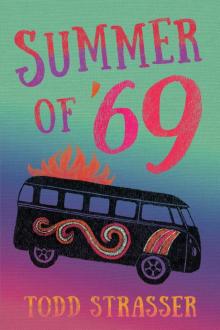 Summer of '69
Summer of '69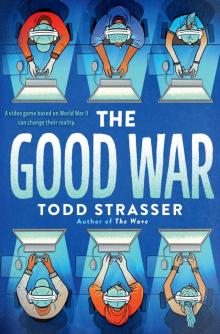 The Good War
The Good War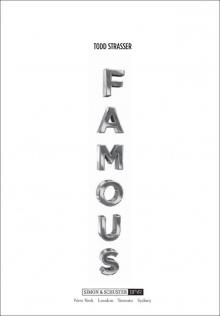 Famous
Famous If I Grow Up
If I Grow Up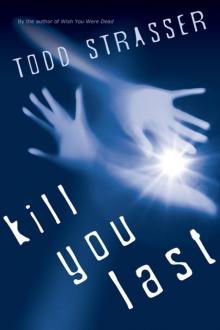 Kill You Last
Kill You Last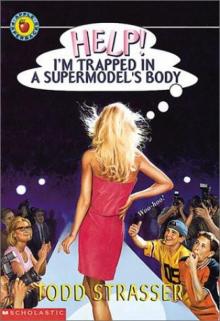 Help! I'm Trapped in a Supermodel's Body
Help! I'm Trapped in a Supermodel's Body Price of Duty
Price of Duty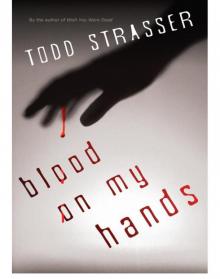 Blood on My Hands
Blood on My Hands Help! I'm Trapped in My Sister's Body
Help! I'm Trapped in My Sister's Body sidewayz glory
sidewayz glory The Beast of Cretacea
The Beast of Cretacea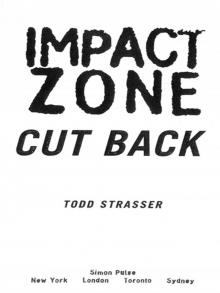 Cut Back
Cut Back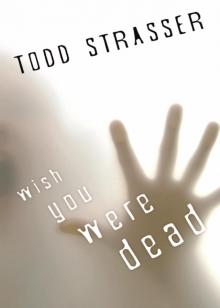 Wish You Were Dead
Wish You Were Dead The Wave
The Wave Home Alone 3
Home Alone 3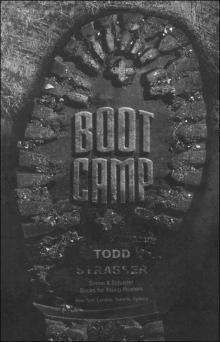 Boot Camp
Boot Camp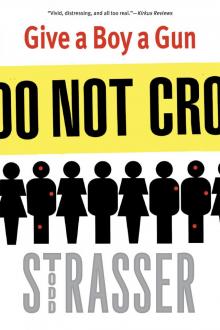 Give a Boy a Gun
Give a Boy a Gun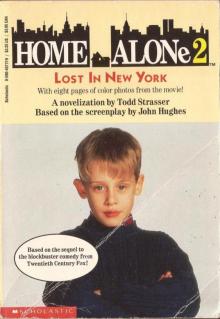 Home Alone 2
Home Alone 2 The Shore
The Shore Can't Get There from Here
Can't Get There from Here Home Alone
Home Alone Close Out
Close Out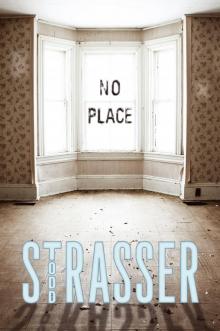 No Place
No Place Star Wars - Episode I Journal - Anakin Skywalker
Star Wars - Episode I Journal - Anakin Skywalker